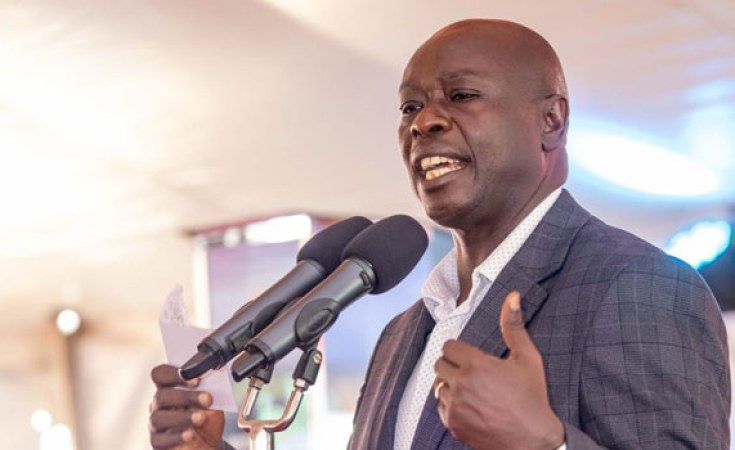Kenyan lawmakers have launched an unprecedented motion to impeach Deputy President Rigathi Gachagua - accusing him of undermining the government, stoking ethnic tensions and corruption.
The move signals a widening rift between Gachagua and President William Ruto, with their once-close alliance now apparently in tatters.
A total of 291 members of parliament signed the motion - far exceeding the one-third threshold required to bring it to a vote. The impeachment drive was initiated by Mwengi Mutuse, an MP from Ruto's own coalition.
"Gachagua has inexplicably amassed a humongous property portfolio... primarily from suspected proceeds of corruption and money laundering", Mutuse said in the motion.
He accused Gachagua of accumulating wealth estimated at 5.2 billion shillings (€35.96 million) within two years, despite an annual salary of just €83,520.
The deputy president faces 11 grounds for impeachment, including allegations he contradicted Ruto in public and likened the government to a company, suggesting those who voted for the coalition had first claim on public sector jobs and development projects.
"The curse of Africa has always been tribalism and corruption", said Labour Minister Alfred Mutua on X. "This motion ... is not about politics but about saving Kenya's soul."
UN grants one-year extension for Kenya-led security mission to Haiti
Denials
Gachagua, a 59-year-old businessman from the vote-rich Mount Kenya region, has denied the accusations as politically motivated.
He claims to have been sidelined by Ruto in recent months and rejects allegations that he was behind violent anti-government protests earlier this year.
Those demonstrations, sparked by planned tax hikes, led to more than 50 deaths and saw Ruto nominate members of the main opposition to his government - a move that further marginalised Gachagua's influence.
However, some analysts view the impeachment drive as a distraction tactic.
"The best way to divert attention from these crises is to create a crisis in the name of having to fix the deputy president", Macharia Munene, a professor at the United States International University in Nairobi, told Reuters.
If the motion passes with a two-thirds majority in the National Assembly, it will proceed to the Senate. There, Gachagua or his representative can respond to the allegations before a potential vote.
Should the impeachment succeed, Gachagua would become the first deputy president ousted under Kenya's 2010 constitution. The last similar case occurred in 1989 when then vice-president Josephat Karanja resigned when faced with a parliamentary no-confidence vote.
(with newswires)


